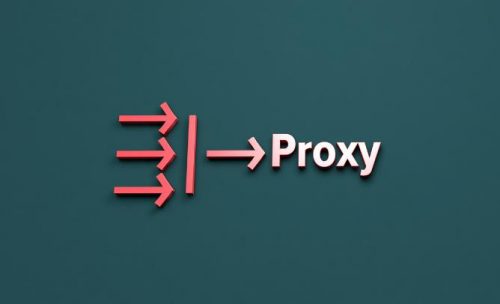When it comes to business, the right tools can make all the difference. In order to choose the best proxy for your needs, you need to understand what a proxy is and what it can do for you.
In this article, we will discuss the different types of proxies available and how to choose the best one for your business. Stay tuned!
What Are Proxies and What Are Their Uses?
A proxy is a server that acts as an intermediary between your computer and the internet.
 Some of the most common features that a proxy has:
Some of the most common features that a proxy has:
- A good proxy should offer security features such as encryption and authentication. This will help protect your data from being intercepted by hackers.
- This is especially important if you have employees who need to access data from different locations.
- accessibility to blocked content. It is useful if you are located in a country with internet censorship.
The Different Types of Proxies
There are few different types of proxies that you can choose from, each with its own set of features and benefits.
 The most common types of proxies are:
The most common types of proxies are:
1. Shared proxies
It is the most common type of proxy. Shared proxies are usually provided by web hosting companies and allow multiple users to share a single IP address. They are good for simple tasks like anonymous web browsing, but not suitable for more advanced uses like bypassing geo-restrictions or accessing sensitive information.
2. Private proxies
They are usually more expensive than shared proxies, but they offer greater flexibility and security. Unlike shared proxies, private proxies provide each user with a unique IP address. They are suitable for assignments that require a high level of anonymity, such as online marketing or competitive intelligence.
3. Dedicated proxies
Dedicated proxies are the most expensive type of proxy, but they offer the highest level of performance and security. They are provided by specialized companies and provide each user with their own dedicated server. This makes them ideal for mission-critical applications like online banking or e-commerce.
4. Residential IP proxies
Residential IP proxies use real IP addresses from home users instead of data centers like most other proxies. Because of that, they are more difficult to block and allow you to access content that is normally blocked by your ISP. You can try a residential IP proxy if you need to access a specific website or content that is blocked.
How to Choose Proxy?
 Here are a few things to keep in mind when choosing a proxy:
Here are a few things to keep in mind when choosing a proxy:
- Consider your needs. What are you using the proxy for? If you need a proxy for work or school, you’ll want to make sure it is compatible with any apps or websites you need to use. If you’re just looking to browse the web anonymously, any proxy will do.
- Check the security features of the proxy. A good proxy will offer encryption and other security measures to protect your data.
- Look at the speed and reliability of the proxy. A slow or unreliable proxy can be frustrating to use, so it’s important to choose one that is fast and reliable. Consider the price. Some proxies are free, while others charge a monthly fee. Choose the one that fits your budget and needs.
Examples of Businesses that Could Use a Proxy
Several businesses could benefit from using a proxy.
Some examples include:
1. E-commerce busineses
If you run an eCommerce business, security is paramount. A proxy can help keep your data safe from hackers. Additionally, it can help improve performance by caching content and reducing latency.
2. Businesses with multiple locations
That includes cafes and restaurants, retailers, estate agents, small manufacturers, etc. These businesses often need to access data from different locations, and a proxy can help do that and improve performance as well.
3. Businesses that need to access blocked content
If some websites are blocked in your country, a proxy can help you access them.
Benefits of Using a Proxy for Business
 There are some benefits to using a proxy for business. Some of the most important benefits include:
There are some benefits to using a proxy for business. Some of the most important benefits include:
- proxies improve security by filtering out dangerous or unwanted content
- proxies help to improve performance
- proxies help businesses to access blocked content
- proxies can be used to monitor employee Internet usage and ensure compliance with company policy
Final Thoughts
If you are looking for a way to improve security, performance, and access to blocked content, a proxy may be the right solution for you. Be sure to consider your needs and choose the right proxy for your business.



































